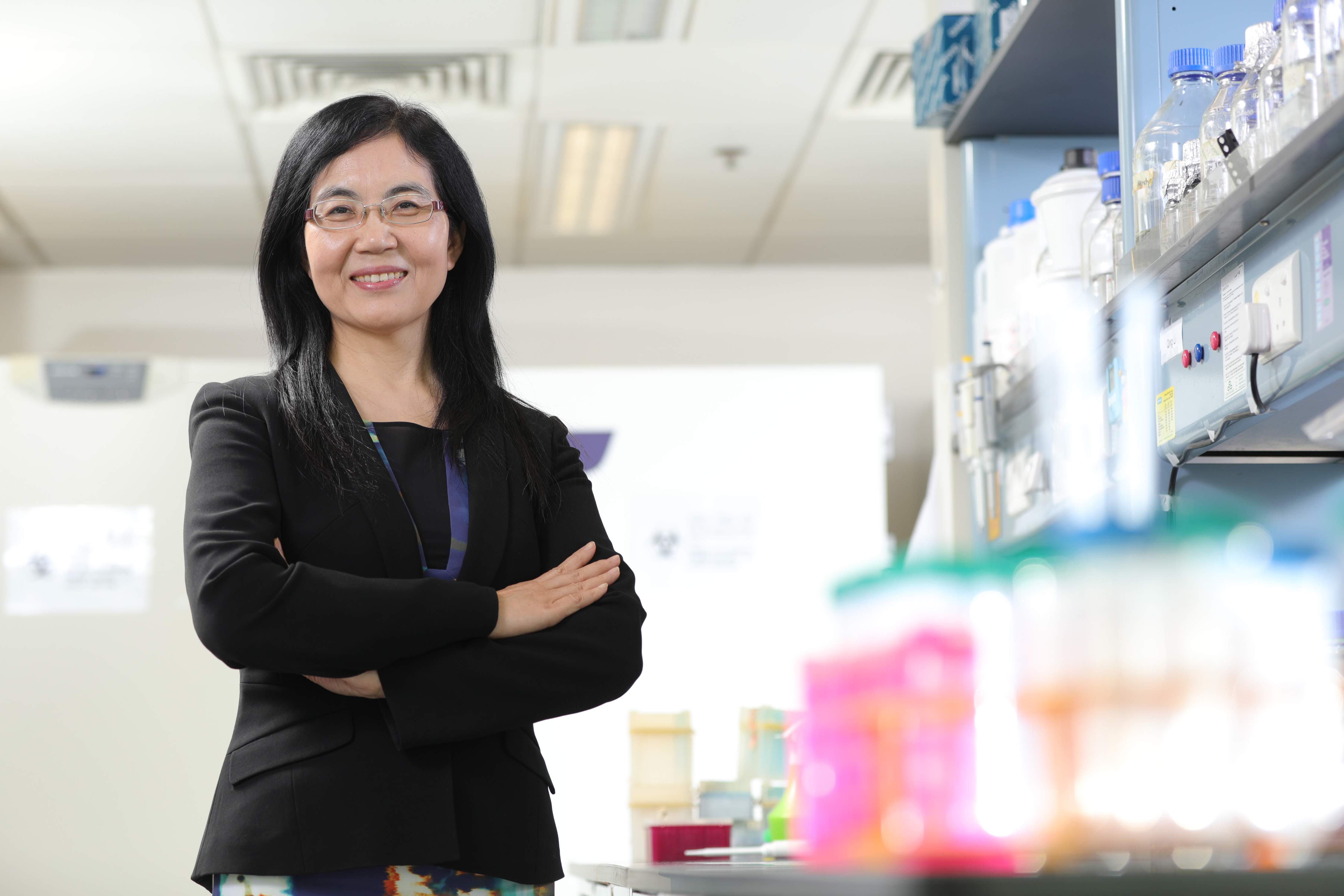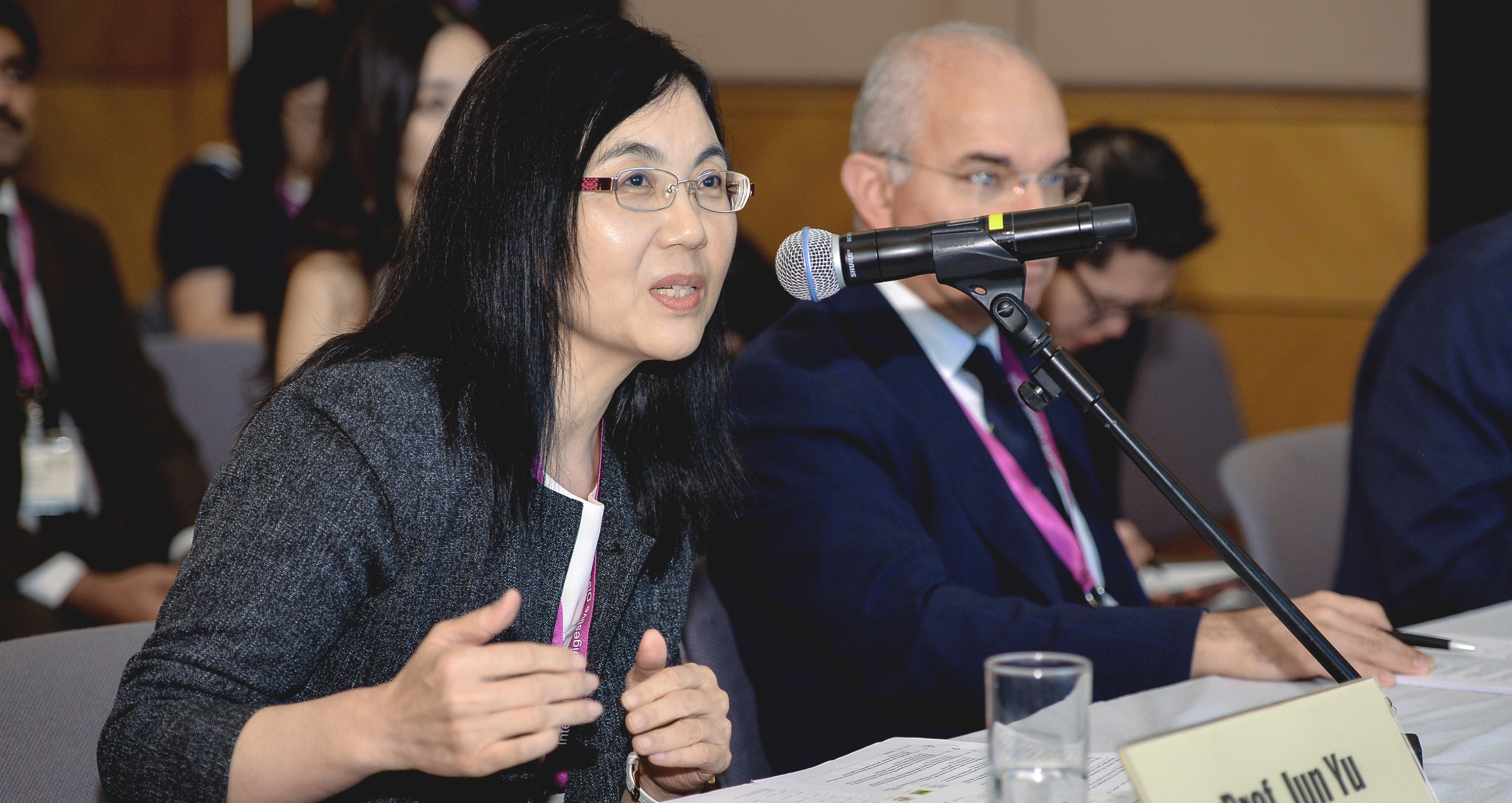Professor Yu obtained MD and PhD at Tongji Medical University in 1994. She then embarked on a gastrointestinal specialist at the Beijing University, followed by a postdoctoral fellowship at the University of Magdeburg, Germany and CUHK, and worked as a senior research officer at the University of Sydney. She has joined CUHK in 2005 and become a Professor of the Department of Medicine and Therapeutics in 2011. She now serves as
- Council Member of American Gastrointestinal Association (AGA) Microbiome and Microbial Diseases (2018-present);
- Associate Chairman of Cancer and Gut Microbiome of China Anti-Cancer Association;
- Vice-Chairman of Digestive Committee of China Women Physicians Association;
- Associate Chairman of HK Scientist Association.
Professor Yu is also a member of the editorial boards of over 10 International journals, such as Deputy Chief Editor of J Gastroenterol Hepatol, Associate Editor of Oncogene, Scientific Reports and Editor for Gut, etc.





